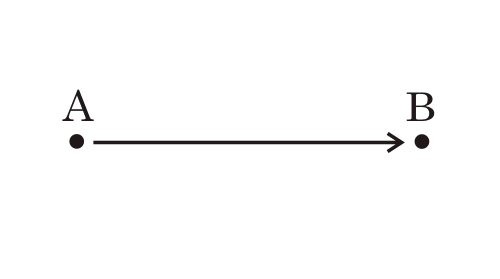|
LITR 4632: Literature of the Future  |
Student Midterms 2011: Sample Essay 2
|
 |
Jenn Tullos
22 June 2011
What Churches Don’t Tell You: Apocalypses Do Not End in Utopias
A world in which no one experiences pain and
suffering maintains dysfunction without the freedom of knowledge and choice.
Traditionally, if one believes in Heaven, he believes it to be the ultimate
utopia: no tears, no pain—nothing but happiness for all eternity. Honestly, this
is what I believed until taking Literature of the Future and delving further
into the idea of apocalypses and the possibility of a true utopia. It is a nice
story to accept. Who would refuse a world such as the Eloi experience in
The Time Machine, in which days are
spent lounging, tanning, making love, and eating fruit? Or perhaps an
environment like that depicted in “The Gernsback Continuum” where the roads are
made of crystal and those who walk them are blond, white, American, and utterly
carefree. And of course, there is Heaven as prophesized in “Revelation”: streets
of gold, pearly gates, an eternity of bliss. However, eventually we have to
recognize the fact that we are sacrificing something priceless to obtain this
utopia: knowledge. A utopia, at least in the strictest, manmade sense, cannot
exist without its inhabitants being breached of knowledge, thereby stripping
power and leading to dystopia.
The fact that Eden and utopia are synonymous is ironic, considering Eden
never evolves into true perfection. I do not mean this to be blasphemous—I
believe that the Creator is perfect, but that Eden falls short. Although,
according to “Genesis”, Adam and Eve possess everything they could have
imagined, they still crave the information they lack, thus resulting in their
dismissal from said “utopia.” The sole aspect missing from Eden is knowledge.
When Eve succumbs to Satan’s temptation, she does so because he convinces her
that her “eyes will be opened as soon as [she] eats [the fruit], and [she] will
be like God, knowing both good and evil” (Gen. 3.5). Immediately upon gleaning
complete knowledge, the utopian society is destroyed, thereby maintaining
awareness and utopia do not intermingle. As Meagan showed in her Future Vision
Presentation, we see the same elements of a veiled dystopia in
The Giver. Somewhat paralleling Eden,
the community in The Giver has no
knowledge of anything negative, controversial, or personal. Nor do they
experience joy, pleasure, or anything more than bland mediocrity. Every aspect
of freedom and choice is taken in an attempt to create a harmonious environment
in which everyone moves ignorantly through a passionless life. In both stories,
knowledge eradicates the attempted utopia, leading me to wonder just how much we
are willing to sacrifice to obtain the impossible. In “The Gernsback Continuum”,
the narrator suggests that we should sacrifice nothing, because utopia is not
worth having. After seeing both “the Dream” and the scum of reality, he decides
the world could end up being “even worse, it could be perfect.” It seems each
person must choose between ignorance and knowledge, bliss and power.
An apocalypse can be summed up in one word: sublime. The reason humans
can digest the idea of impending destruction is that hope lies beyond the pain.
Hope, for example in Parable of the Sower,
can be an extremely strong force, motivating people to adapt to the present in
order to ultimately reach the promised future. The problem remains, however,
that every utopia eventually reveals itself (at least to some degree) as a
dystopia. Without the knowledge that is lifted to form paradise, people are
without power. In Parable, Lauren and
Harry having the ability to read and write makes them markedly more adept than
the others. True, they may not have completely honed their survival skills, but
their intelligence gives them hope and power—and eliminates the possibility of
Acorn ever becoming a utopia while the knowledge remains intact. Unlike Lauren
and her followers having to pour everything they have into the success of Acorn,
Heaven’s success is promised in the book of “Revelation”. The lingering
difference, however, is that Lauren is fully aware of sorrow and well as
triumph, death as well as life. In Heaven, God promises that “there will be no
more death or sorrow or crying or pain. All these things are gone forever” (Rev
21.4). In order for this promise to be fulfilled, logic dictates we will have
lost the awareness of those people “left behind.” If this knowledge were not
taken, would we not mourn those absent from an eternity with God? I assert we
would, leading to the primary conclusion that this post-apocalyptic Heaven may
not match the picture so many churches paint. However, utopia is a manmade
concept and man is limitlessly limited.
Because God, the driving force behind the Christian utopia, does not
easily fit into our human ideological constructs, He is one other option for a
successful paradise. It is easy to argue utopia cannot exist—the logic is
reasonable. However, logic, language, and the human understanding of utopia is
precisely that: human. Flawed. Theorist Jacques Lacan states that ultimate
reality, God, or the Real “can only be accessed insofar as it can be languaged.”
Because we can never fully access God through language, perhaps it is merely the
idea of utopia that is flawed instead of post-apocalyptic Heaven. “Revelation”
never mentions the manmade “utopia,” but instead offers that Heaven may not be a
perfect utopia in the strictest sense, but that God’s goodness and glory will be
all-satisfying. With full knowledge intact, there will be tears in Heaven—tears
that God will wipe away. Throughout theories of the apocalypse, humanity seems
to remain hopeful toward a perfect “utopia.” Instead, perhaps we should be more
secured in a perfect God.
 |
 |
 |